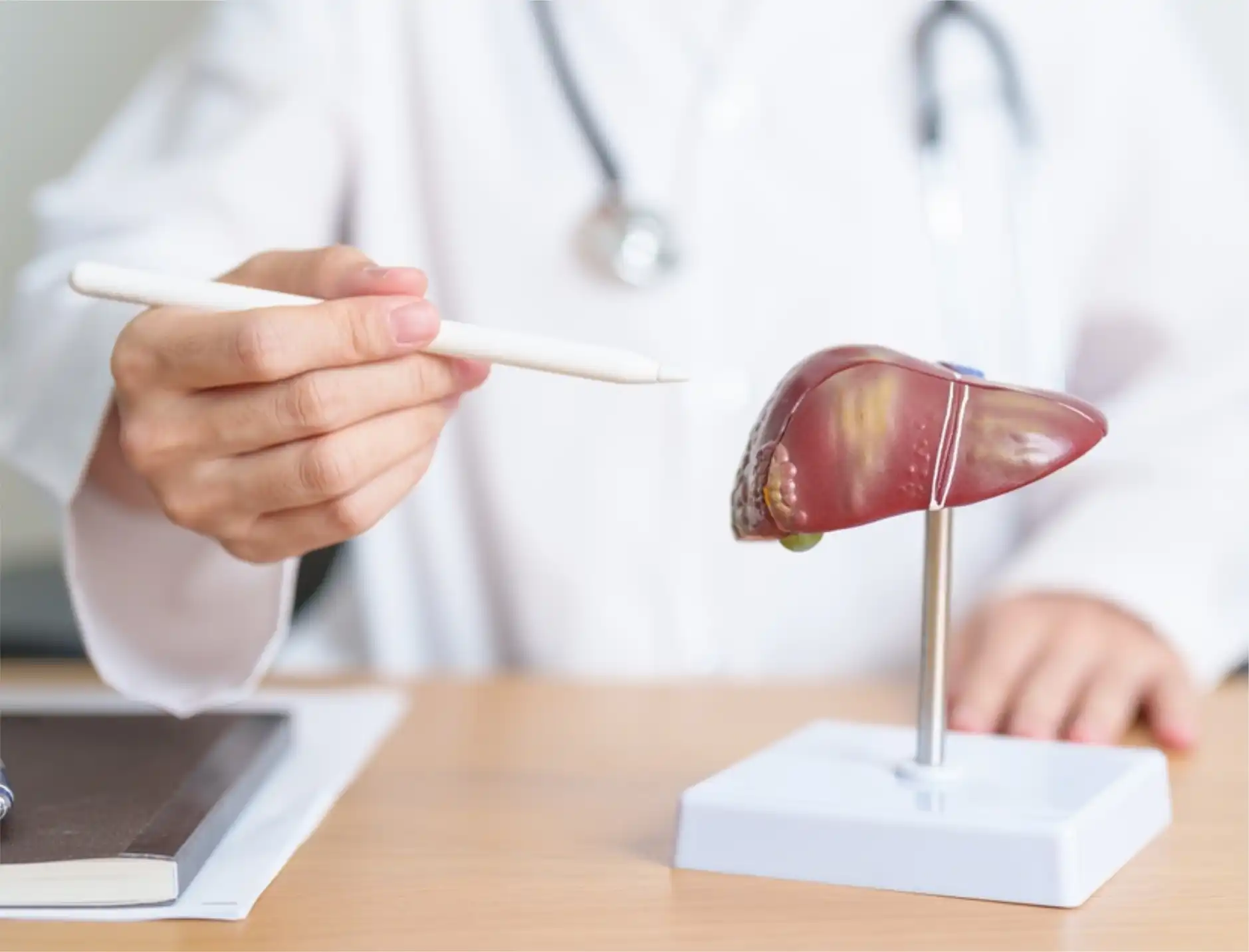Non-Alcoholic Fatty Liver Disease: Causes, Symptoms, and Treatment Options
Home > Blogs > Non-Alcoholic Fatty Liver Disease: Causes, Symptoms, and Treatment Options



Non-Alcoholic Fatty Liver Disease (NAFLD) is one of the most common liver conditions worldwide. This condition involves the buildup of excess fat in the liver without excessive alcohol consumption. If left untreated, NAFLD can lead to more serious liver issues such as cirrhosis or liver failure. In this blog, we will explore the causes, symptoms, and treatment options for NAFLD, and highlight the importance of seeking care at top medical facilities like Aayush Hospitals, Bhuj—one of the Best General Surgery Hospitals in Bhuj.
What is Non-Alcoholic Fatty Liver Disease?
Non-Alcoholic Fatty Liver Disease refers to a condition where fat accumulates in the liver cells without the influence of alcohol consumption. While the liver plays a key role in detoxification, excessive fat buildup can hinder its normal functioning. This can result in inflammation, fibrosis, and in severe cases, cirrhosis or liver cancer.
Causes and Risk Factors of NAFLD
Several factors contribute to the development of Non-Alcoholic Fatty Liver Disease. Some of the most common include:
Obesity and Overweight
Excess body fat, particularly abdominal fat, is a significant contributor to NAFLD. Obesity leads to insulin resistance, making the liver more likely to store fat.
Type 2 Diabetes
People with Type 2 diabetes or insulin resistance have a higher risk of developing NAFLD. Elevated blood sugar levels contribute to fat accumulation in the liver.
High Cholesterol and Hypertension
High cholesterol and high blood pressure are linked to liver damage. These conditions increase the likelihood of fat buildup in the liver cells.
Poor Diet
A diet high in refined sugars, unhealthy fats, and processed foods increases the risk of NAFLD by promoting weight gain and liver fat accumulation.
Genetic Factors
Family history plays a role in the development of NAFLD. Individuals with relatives suffering from liver conditions are at greater risk.
Other Health Conditions
Conditions such as polycystic ovary syndrome (PCOS), sleep apnea, and hypothyroidism may also contribute to NAFLD.
Symptoms of Non-Alcoholic Fatty Liver Disease
In the early stages, NAFLD may present no symptoms. However, as the condition progresses, the following symptoms might appear:
Fatigue or general tiredness
Abdominal discomfort, especially in the upper right side
Unexplained weight loss or weight gain
Jaundice (yellowing of the skin or eyes)
Swelling in the abdomen or legs
Dark urine or pale stools
If you experience any of these symptoms, it is important to consult a healthcare provider. Visiting the Best General Surgery Hospitals in Bhuj, such as Aayush Hospitals, can help with early detection and treatment of NAFLD.
Diagnosis of NAFLD
To diagnose NAFLD, doctors typically begin with blood tests to assess liver function, specifically liver enzymes. Imaging tests like ultrasounds or CT scans can also identify fat buildup in the liver. In more advanced cases, a liver biopsy may be required to evaluate the extent of liver damage.
At Aayush Hospitals, Bhuj, our team of highly skilled specialists, including some of the Top General Surgeons in Bhuj, offer advanced diagnostic services to detect and monitor NAFLD.
Treatment Options for Non-Alcoholic Fatty Liver Disease
The treatment of NAFLD is largely focused on addressing its underlying causes. Depending on the stage of the disease, the following treatments may be recommended:
Weight Loss
Losing even a small amount of weight (5-10%) can reduce liver fat and inflammation. A combination of a balanced diet and regular exercise is essential for managing NAFLD.
Healthy Diet
A diet rich in fruits, vegetables, lean proteins, and healthy fats can help manage liver fat. It is important to reduce sugar, processed foods, and unhealthy fats from the diet.
Regular Exercise
Physical activity plays a crucial role in reducing liver fat and maintaining a healthy weight. Activities like walking, swimming, or cycling are highly recommended.
Managing Comorbidities
NAFLD is often linked to conditions like diabetes, high blood pressure, and high cholesterol. Properly managing these conditions is crucial in preventing liver damage.
In more severe cases, medications may be prescribed to control blood sugar or reduce liver inflammation. Surgical options may also be considered for patients with advanced liver damage, and the expertise of the Top General Surgeons in Bhuj is vital in such cases.
Preventing NAFLD
Prevention of NAFLD is largely within your control through lifestyle changes. Maintaining a healthy weight, exercising regularly, and eating a balanced diet can significantly reduce the risk of developing this condition. Additionally, regular health check-ups are crucial, especially for individuals with risk factors like obesity, diabetes, or a family history of liver disease.
Why Choose Aayush Hospitals, Bhuj?
If you are concerned about NAFLD or need advice on managing liver health, Aayush Hospitals, Bhuj, is a trusted name in the region. Our hospital provides advanced diagnostic and treatment services for liver conditions. As one of the Best General Surgery Hospitals in Bhuj, we are committed to offering the best possible care to our patients, helping them achieve better liver health and improved quality of life.
Conclusion
Non-Alcoholic Fatty Liver Disease is a serious condition that can lead to liver complications if not managed properly. By understanding its causes, recognizing its symptoms, and seeking treatment from skilled healthcare professionals, you can reduce the risk of severe liver damage. Aayush Hospitals, Bhuj, offers comprehensive care from Top General Surgeons in Bhuj to help you manage and treat NAFLD effectively. Don’t wait for symptoms to worsen—consult with our team today to take control of your liver health!